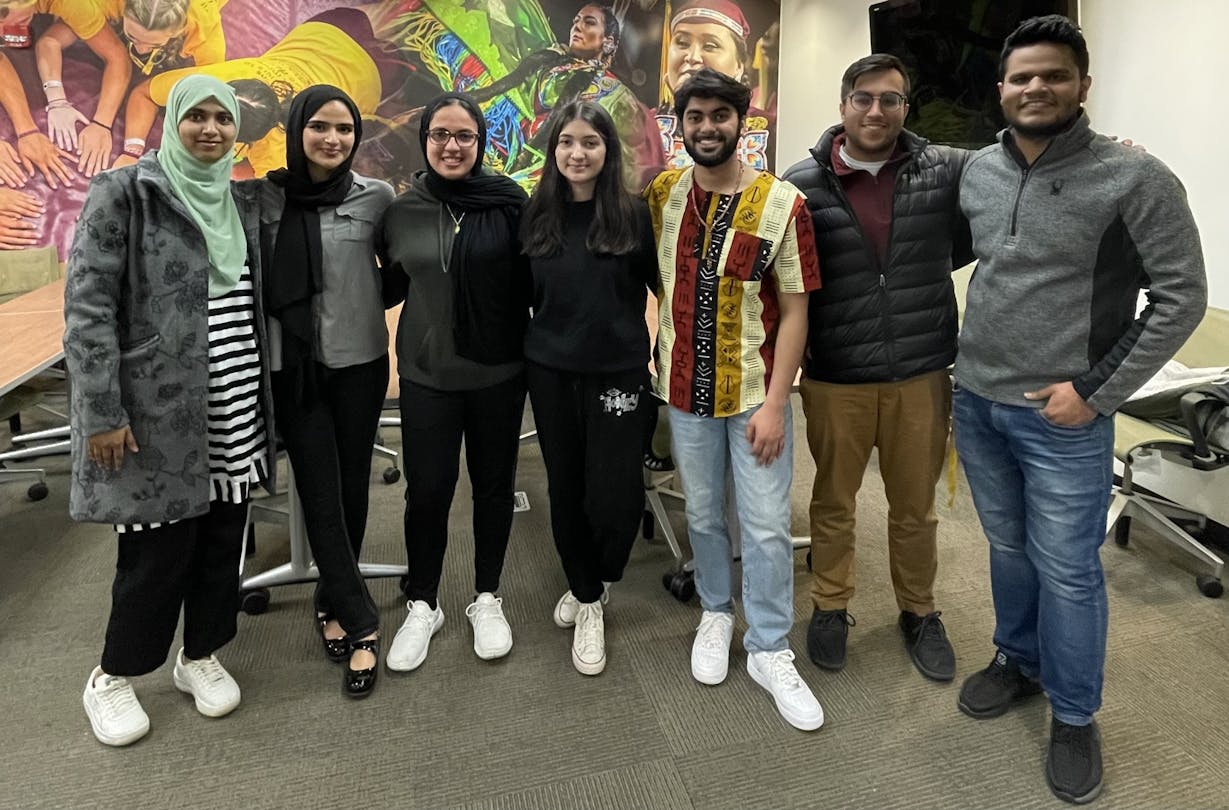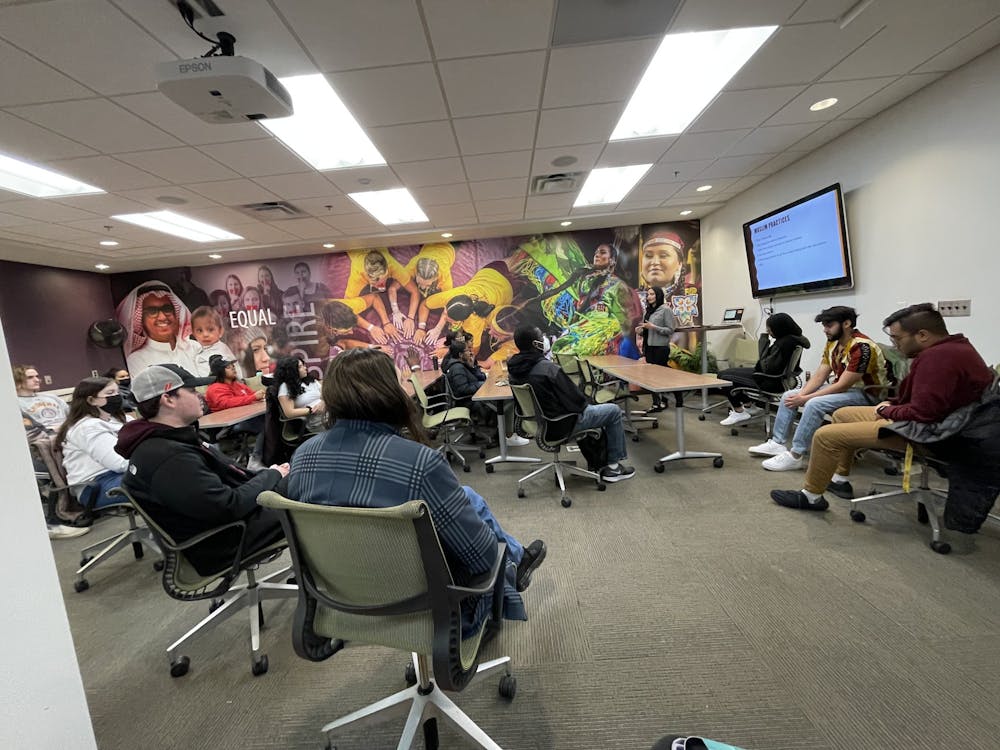Muslim college student panel discusses being a 'major minority', lack of accommodations
In honor of Arab American Heritage Month, a panel of Muslim college students was held in the Bovee University Center room 108.
Organized by the Muslim Student Association, panelists discussed the experiences of Muslim students at Central Michigan University, daily struggles and resources for current and incoming Muslim students.
Panelists included Sana Gala, Salma Abdelgawad, Munif Hakim and Feehan Sultan.

From left to right, Humera Syed, Sana Gala, Salma Abdelgawad, Mahum Hakim, Munif Hakim, Feehan Sultan, and Mohammed Mohiddin pose for a photo after the Muslim College Students panel on April 19.
They started off by talking about several ways that CMU lacks accommodations for Muslim students including a requirement of three-week notice for students to receive time off when having to attend Eid al-Fitr, which is at the end of Ramadan, and early morning classes - and exams - interfere with prayer times.
"I know for a lot of undergrad students our exam week is the same time as the last week of Ramadan. The last 10 days of Ramadan are very spiritual to us. We'd like to spend a lot of time in Prayer, I know a lot of us are at the Mosque until like 12, one o'clock at night. So that tends to be really difficult. I know I have exams right after Prayer in the morning," Gala said.
They encouraged CMU to recognize that Muslim students have to fit their schedules around prayer which is not an easy task.
Fasting was another topic the panelists said CMU lacks accommodations for. When students fast during the day, it is difficult to get breakfast in the morning before the sun rises because dining halls are closed.
“When it’s Ramadan you feel it, people are fasting, it’s a holiday for us," Gala said. "We hold it dear to our heart."
The panelists explained what fasting is and when a person starts. Muslim girls and boys begin fasting - no eating or drinking for 16 hours - around puberty. Fasting requires no swearing and impure thoughts, which the panelists said strengthens people mentally and spiritually. Anyone sick, disabled, diabetic, ill, pregnant or menstruating does not have to fast.
When the dining halls are open, the panelists said food options for Muslim or Middle Eastern students are very limited though the selection has improved in the past year.
They also said CMU does not recognize some Muslim holidays and many students are unaware there is a mosque in Mount Pleasant.
Another topic the Director of MASS, Wade Tomson, brought up is that the CMU's application does not offer some ethnicities which leaves students having to identify as white.
The four panelists shared what they wanted people to take away from the event.
“Be aware of Muslims, they are a major minority and just include them and bring up how they can be accommodated,” Gala said.
“I’m always happy to answer questions, if you don’t know something about my religion, I’d love to share information,” Abdelgawad said.
Sultan said there are Muslim stereotypes that need to be eradicated because it is offensive and dehumanizing.
“I’m open to answer questions because assumptions are misconstrued,” Sultan said.
As the event came to an end, the panelists reminded the audience that it is important to learn about different religions, cultures and practices because it could help the world be more appreciative of one another.
One member in the audience, sophomore Erica Famutini, said she learned a lot about what it is like being a Muslim student on CMU's campus.
“This panel was really informative," she said. "I learned a lot about how CMU should be more accommodating. (It) should understand Muslim students better and not think they’re just making up excuses to miss class. It felt good to know more about their experiences."
Join the MSA at its weekly meeting Thursdays at 7 p.m. in the UC Down Under or follow the MSA on Instagram.




